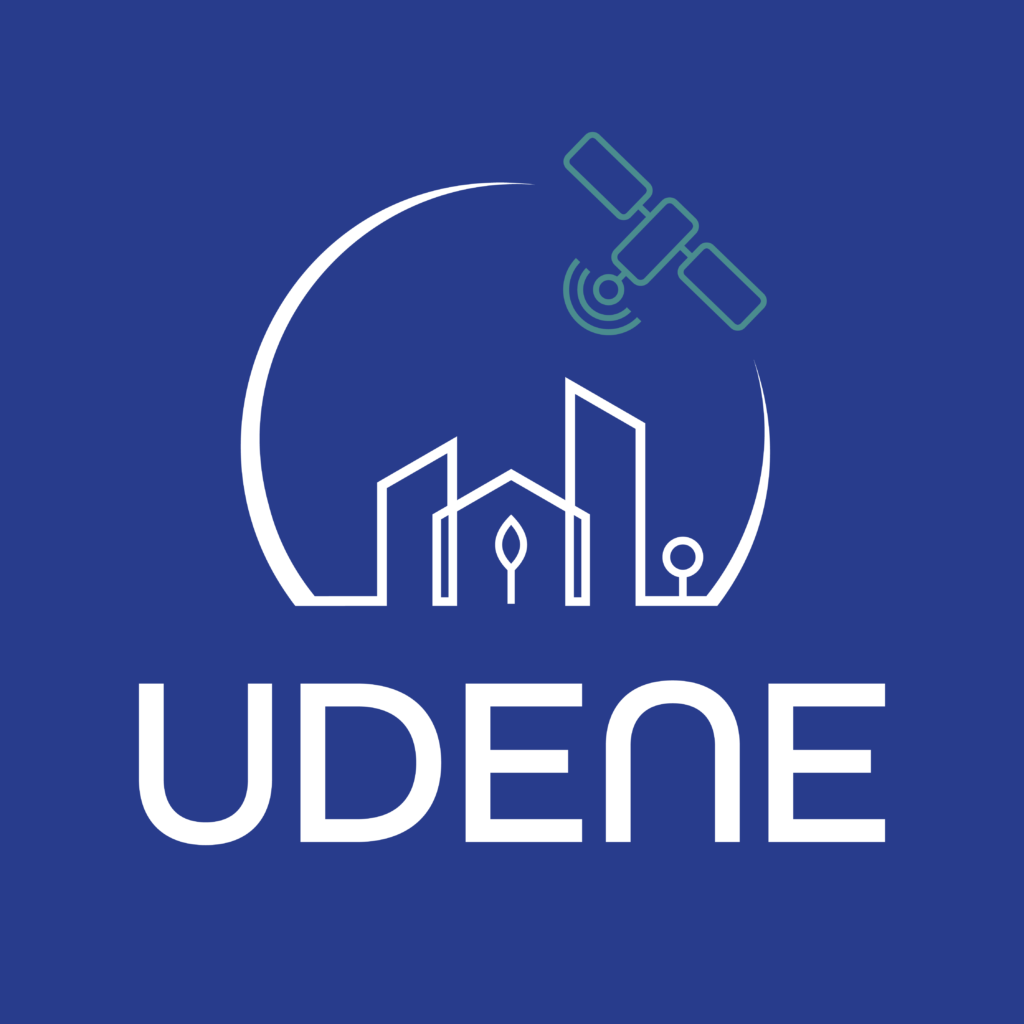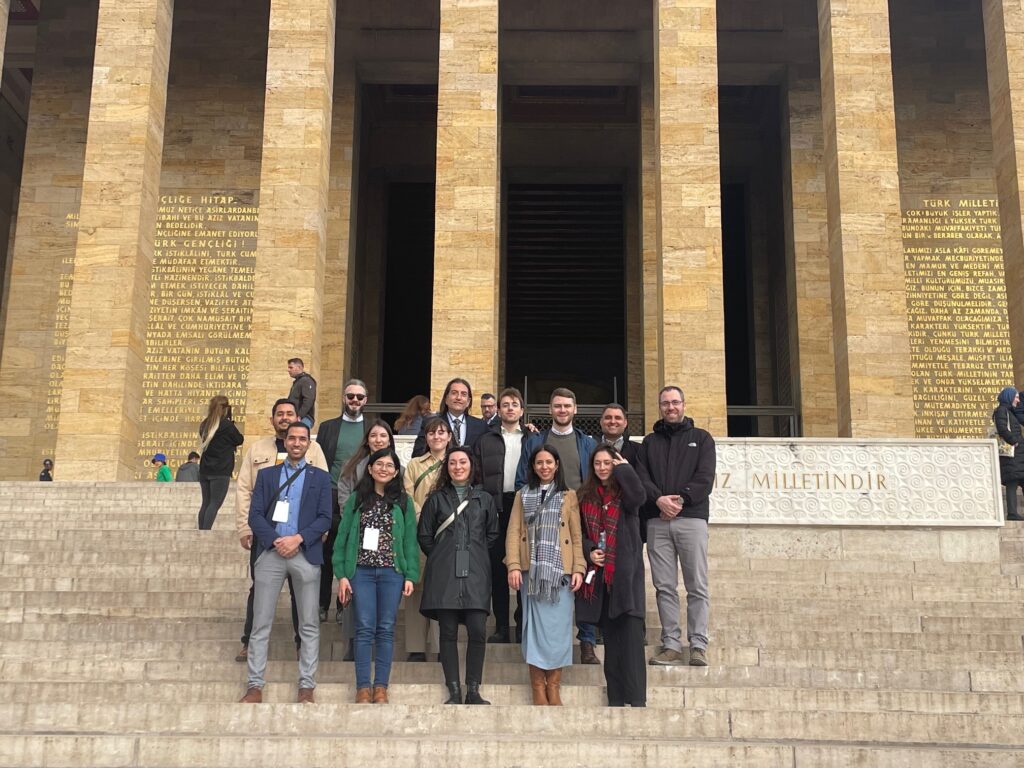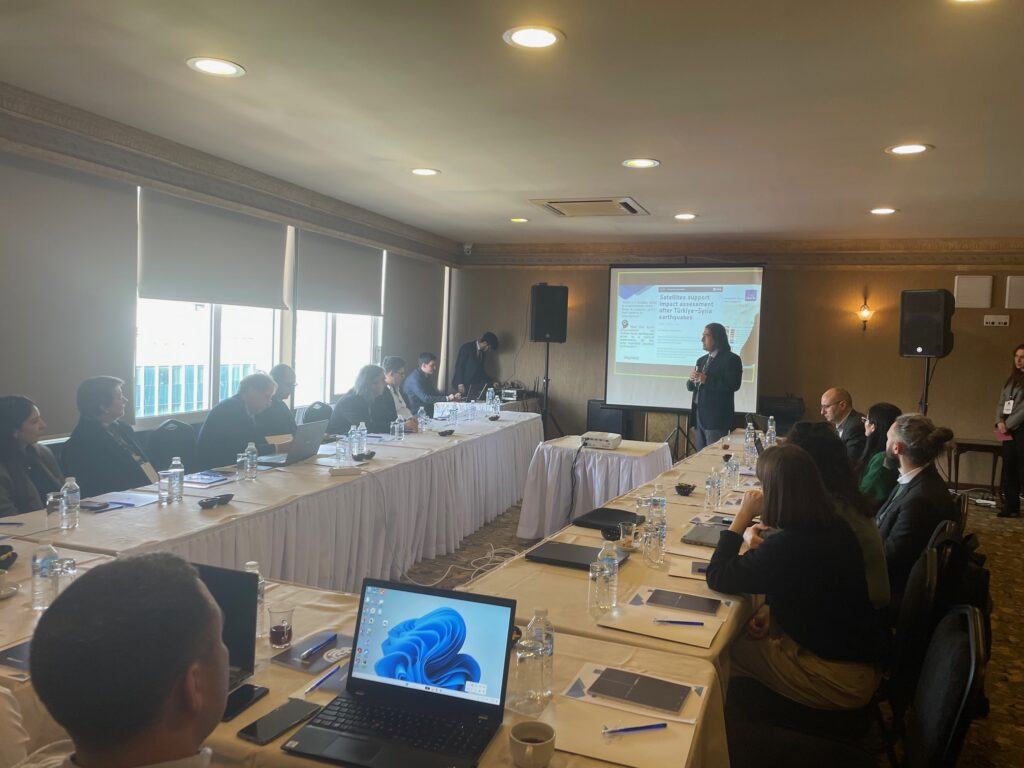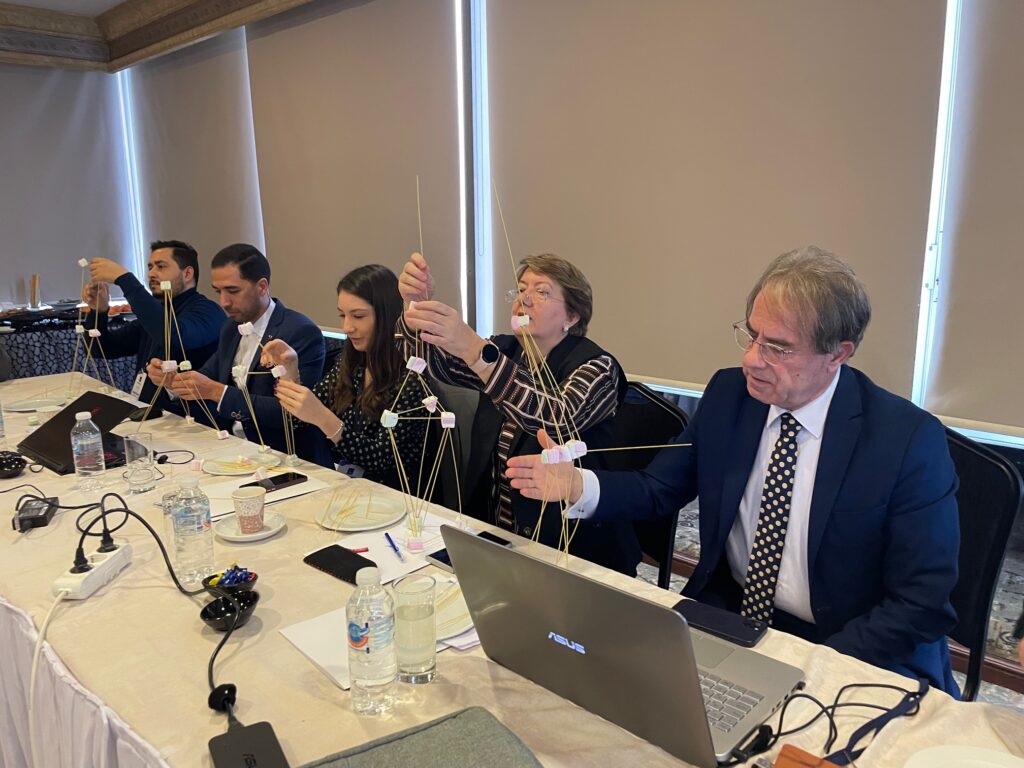From 12th to 14th of February, UDENE consortium met in Ankara, Turkey, to kick-off this new project. Funded through the HORIZON Europe 2022 Space calls managed by EUSPA; the project will last until January 2026. UDENE, standing for Urban Development Explorations Using Natural Experiments, gathers 9 partners, from 6 countries including Tunisia, Turkey, Serbia, Italy, France, and Slovenia, to build sustainable urban environments addressing the challenges posed by increasing urbanisation and the effects of climate change.
Kick starting the meeting, Ms Valeria Catalano, Market Development Officer at the EU Agency for the Space Programme (EUSPA) and Project Officer of UDENE provided an overview of EUSPA’s ambitions to support evidence-based decision making in urban planning and to extend the penetration of satellite-based applications to non-EU neighbouring countries.
Mr Ali Türker, Digital Transformation Leader at WEglobal, and project coordinator, highlighted the synergies between the project’s partners and showcased the results-based and inter-disciplinary approaches informing the activities of the project. Endorsing the project’s objectives, Prof. Dr. Uğur Murat Leloğlu acknowledged the “need for more projects like UDENE to increase the integration” of non-EU countries into the European EO value chain.
UDENE’s main goal is to provide urban visionaries and developers with a virtual laboratory to test the impacts of their assumptions. The Exploration Tool (ET), one of the major project results, will provide scenario-based projections derived from Copernicus Earth Observation (EO) data complemented by relevant in-situ observations. The ET will rely on an innovative data cube to easier access to data and “make full use of both remote sensing and local in-situ data applied to actual environmental and hazardous conditions to test and validate certain hypotheses” (Assoc. Prof. Dr. Onur Lenk from NiK Systems).
To demonstrate the value of this innovative tool, partners will follow a use-case driven approach. Three pilots have been identified. Considering the earthquakes that stroke Turkey last year and to anticipate potential future occurrences, one use case focuses on the impact of high-rise building districts on earthquake preparedness and/or damage and loss assessment in the Municipality of İstanbul, a highly populated urban area near an active fault zone segment. Another use case evaluates the repercussions of park systems on heat loads in the Greater Tunis area, by classifying local climate zones and involving citizens in the data collection processes. The last use case concerns the city of Novi Sad in Serbia and analyses the effects of the construction of a ring-road on traffic congestion and air quality in the city, using local traffic metrics and aiming to make data sets easily available.
Gathering and storing geospatial and temporal data collected within the use cases, the data cube will power both the Exploration and the Matchmaking Tool developed to ensure the usage and integration of the solutions. It will be the base of the Open Calls that will be launched in year 2 to test and validate the virtual laboratory with genuine end-users and to promote the achievements and outcomes of UDENE.
To prove how UDENE could be a game-changing in sustainable urban planning supporting local authorities with evidence-based decision making the project coordinator organised a walk-in downtown Ankara. A city which experienced a rapid increase in the number of inhabitants translated into an uncontrolled urban sprawl Inspired by this insightful outing, partners started technical discussions.
Stay tuned for regular updates!




